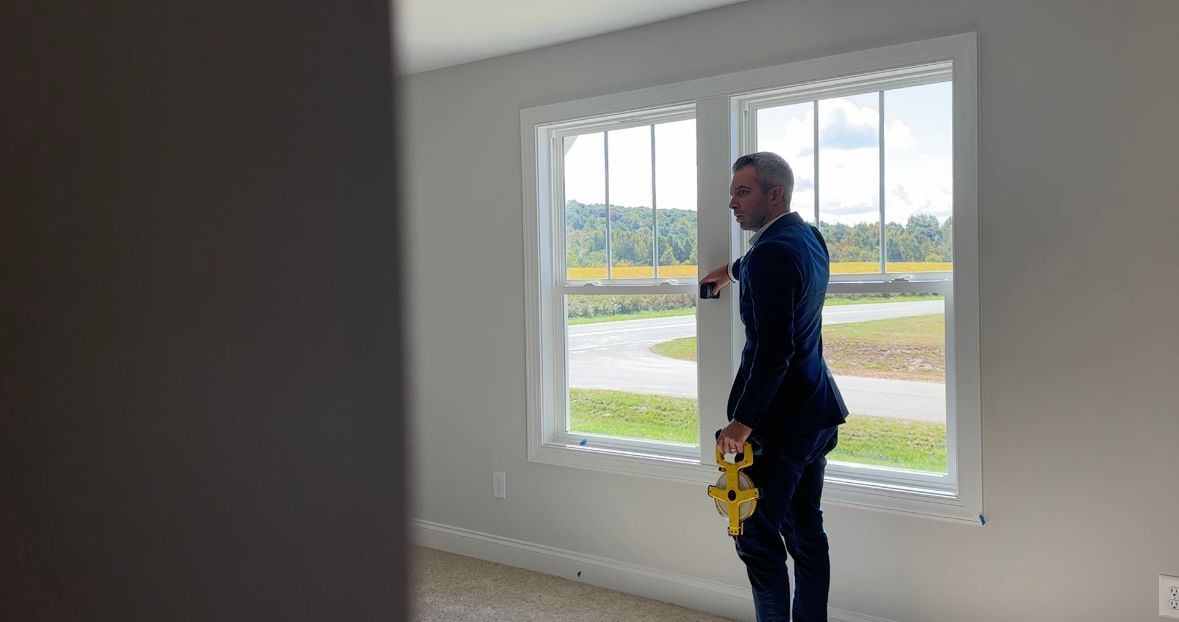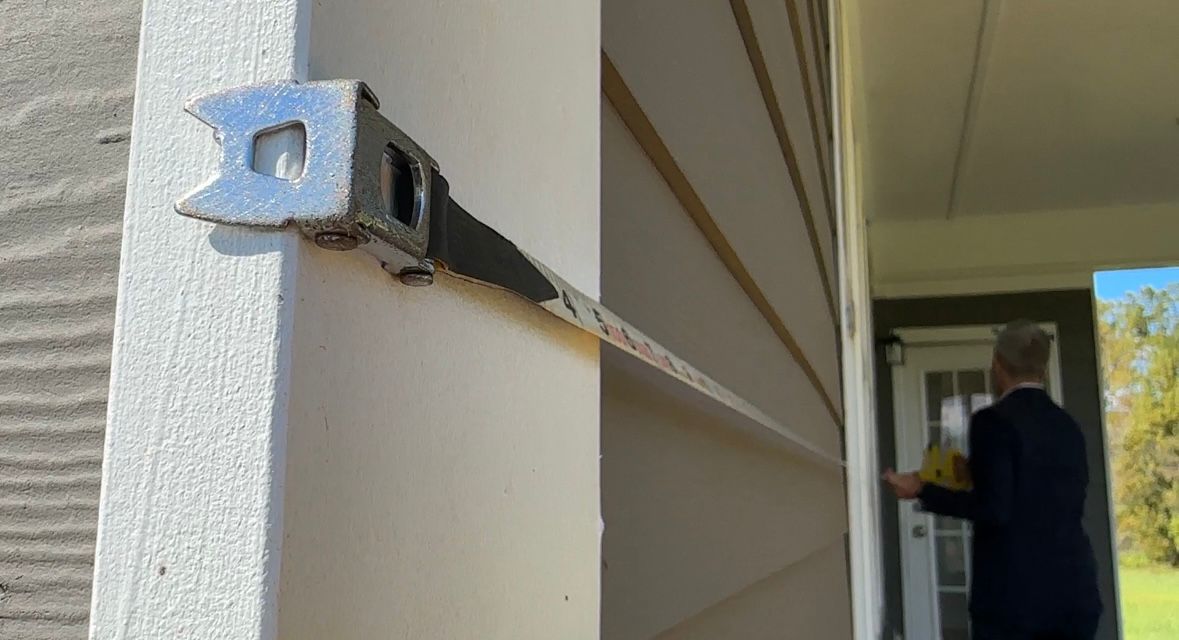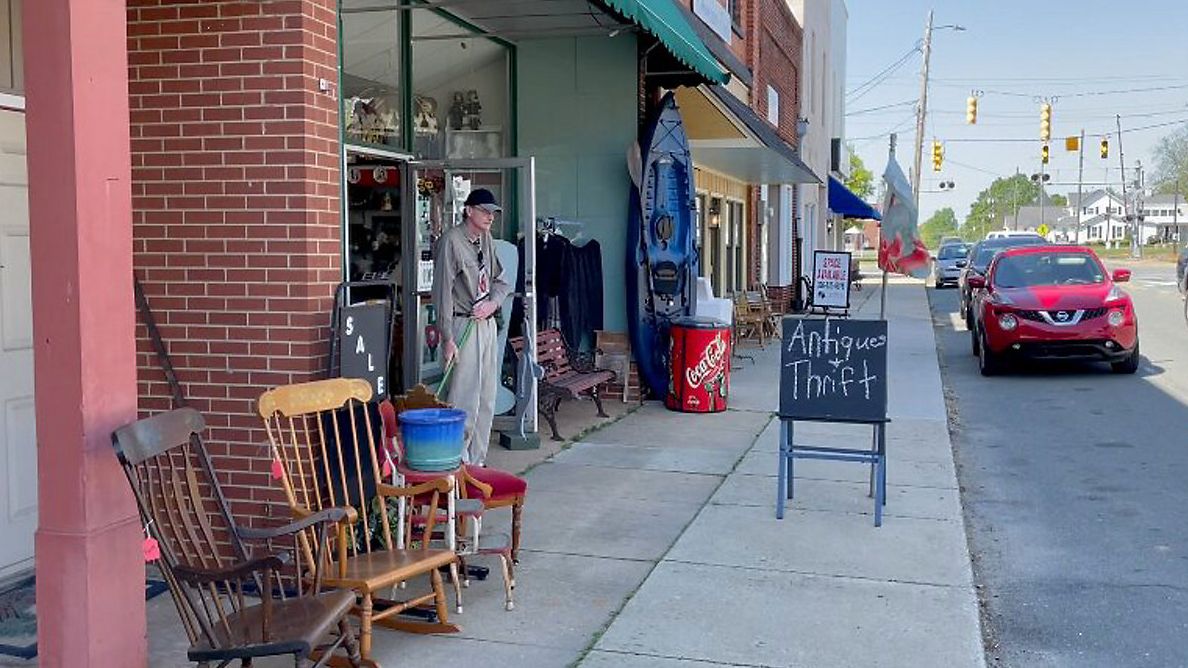MEBANE, N.C. — People under the age of 35 are more likely to be renting a home instead of owning one, according to the U.S. Census Bureau.
John Walker has been in the real estate business for 20 years.
“I got my real estate license in 2004, I was a junior at UNC, and friend of mine asked me would I want to take over his real estate practice? I had no idea about anything in the real estate world, but I decided to give it a try. And here I am 20 years later,” Walker said.
He is the owner of Re/Max Diamond Realty in Mebane, the co-founder of Start School of Real Estate and sits on multiple boards for real estate throughout North Carolina.
Walker currently focuses on commercial spaces, but through his brokers, he is still in tune to the home market across the state.

“When I started out 20 years ago, I had the opportunity to interact with a ton of buyers and sellers on a day-in and day-out basis. And that was fun but was so much more fun for me. Now is the opportunity to help my agents. We have about 30 brokers who get to help people each and every day find a home,” Walker said.
He says North Carolina is a desirable place for many residents to move to, but he has seen a shift in the housing market.
“North Carolina has been a desirable place for a long time. That's nothing new. What's new for us is that the influx has happened to a very quick degree, especially after COVID. So we're a top 10 state for places to live, places to get education, places to have a job. I mean, the list goes on and on. As North Carolina's desirability has gone up and other states desirability has gone down, it has made our supply struggle,” Walker said.
The state has seen large increases in residents, with the U.S. Census Bureau documenting 340,000 people moving to North Carolina in 2022.
“We've had a hard time keeping up with the demand. If you couple the demand troubles with interest rates going up and with inflation going up, then you have an affordability situation that comes about like we have today. And so certainly there are opportunities for people to get into homeownership, but it is more difficult. It has been in the past in North Carolina,” Walker said.
According to Rocket Mortgage, the average interest rate is just short of 8%, a dramatic difference from the beginning of the decade, when it reports the average mortgage interest rate was 3.72% across the U.S.
“Well, the biggest change you're seeing is interest rates. Inflation in the marketplace and North Carolina's growth. So you have a supply problem. We can't keep up with the demand in the state. And so the more people that want to move here, the harder it is for those people to compete with the people that already live here for the same houses,” Walker said.

The increase in interest rates, inflation and the influx of new residents is making the housing demands harder to be attainable to more people, specifically the younger generation trying to break into home ownership.
“It only hurts the renter because they didn't lock in a spot in the ownership game to gain the value of that appreciation with their own property, because as they've been renting property, someone who is renting that property to them, their property is appreciating,” Walker said.
Walker says there is no direct impact to the economy from an increase in renting, but if the housing property stalls, it will impact everyone involved in the home selling process.
"Housing drives multiple aspects of the economy from material sales and multiple trade practices such as builders, lenders, inspectors, appraisers, brokers and more. If houses aren’t being built, bought and sold, it can have a negative impact on many levels of the economy,” Walker said.
He also says his team has seen an increase in new-build properties renting out the town homes instead of selling them.
Walker says he believes interest rates and inflation will remain high into 2024.










